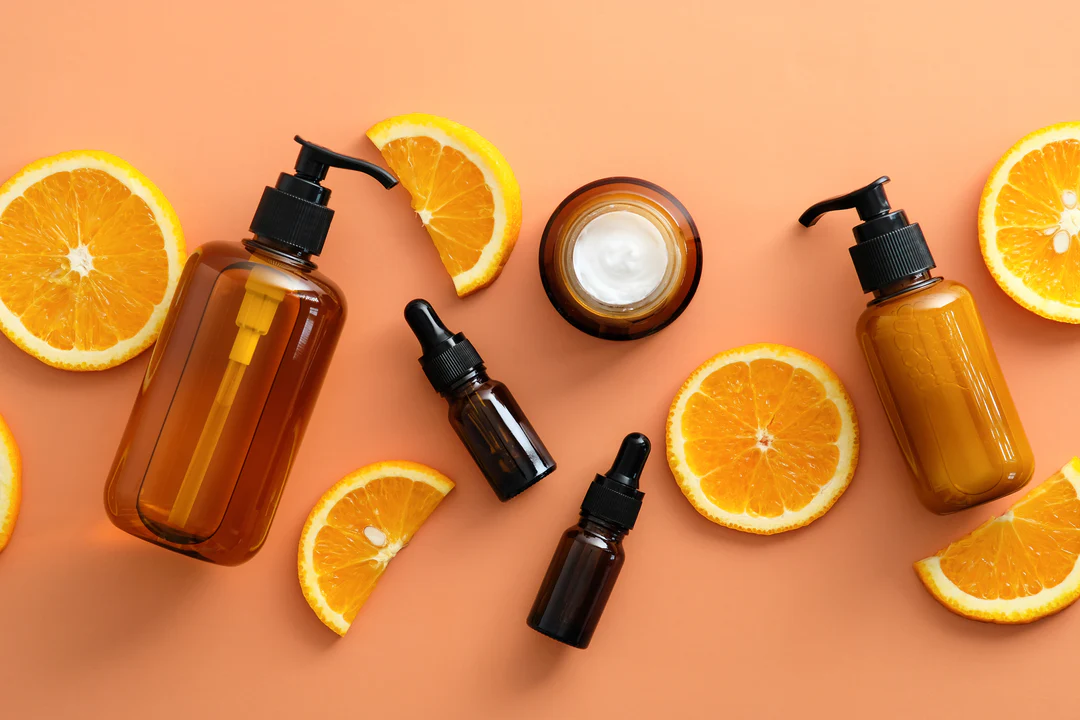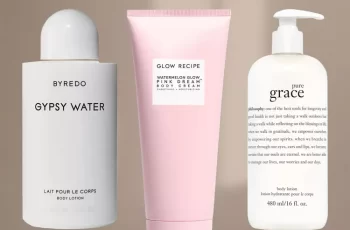Can Vitamin A Serum and Niacinamide be used together?
Some ingredients, when combined with your skincare routine, can be a dream team for your skin. Niacinamide and Vitamin A (also known as retinol) are a duo that can have a positive impact on overall skin health and appearance. Today we’ll take a closer look at how to use Vitamin A serum and Niacinamide together. I’m sure you’ll be impressed with the results!
Let’s quickly summarize what each ingredient looks like and how it benefits the skin.
What are the benefits of Vitamin A (also known as retinol)?
Prevents the appearance of wrinkles and other signs of aging and reduces the appearance of existing fine lines and wrinkles.
Speeds up skin cell turnover for a vibrant, radiant, and healthy-looking complexion.
Improves skin texture by removing the buildup of dead skin cells and smoothing the skin.
Helps regulate sebum production and minimizes the frequency of breakouts.
Reduces dark spots, sun spots, and hyperpigmentation to ensure an even skin tone.
If you want to learn more about retinol, read this Beauty Insiders blog post.
What are the benefits of Niacinamide?
Acts as a humectant, i.e. it draws moisture from the surrounding areas of the skin and traps it within the skin. This helps keep the skin plump, hydrated and healthy.
Helps regulate the amount of oil produced by the sebaceous glands and keeps the skin balanced.
Protects the skin from oxidative stress caused by exposure to free radicals, such as smoke, pollution, harsh climates and other environmental aggressors.
Fights dark spots and hyperpigmentation by brightening dark areas and increasing collagen production.
Keeps the skin’s lipid barrier in its healthiest state, ensuring it is able to protect itself from environmental stressors.
Minimizes the appearance of pores, ensuring they remain clear and become less noticeable over time.
Niacinamide has other benefits as well, which you can learn more about in our dedicated blog post.
Okay, now that you’ve brushed up on your skincare knowledge. Let’s take a closer look at using Vitamin A and Niacinamide together.
Which serums can be used with Niacinamide?
The beauty of Niacinamide is that it is versatile and compatible with many ingredients in skincare. Even potent active ingredients like retinol, salicylic acid, and glycolic acid benefit from being combined with niacinamide. This is because its hydrating properties allow it to lock moisture to the surface of the skin. This not only helps keep the lipid barrier healthy, but it also counteracts the drying effects that often occur when using the previously mentioned powerful ingredients.
They point out that there is some confusion about using niacinamide and vitamin C together. This is due to misconceptions that combined the two ingredients based on outdated data. The facts found in the data date back to a few years ago when certain forms of vitamin C were unstable after being mixed into a formula. It was believed that applying niacinamide to the skin would have counterproductive results, limiting the effectiveness of both ingredients and their ability to achieve optimal results.
This is no longer the case with most formulas in recent years, but if you are still concerned about layering ingredients, wait about ten minutes between applications to avoid unwanted side effects.
What Not to Mix with Niacinamide Serums?
As I mentioned earlier, niacinamide is a versatile and effective skincare ingredient. However, there are still some misconceptions about how to effectively use niacinamide and vitamin C together in your daily routine.
Both ingredients are powerful antioxidants that are found in many skincare products. There are some tips and tricks to get the most out of these active ingredients. Here are some examples of how many users use niacinamide and vitamin C together.
If you use both ingredients in the same routine, be sure to wait 10 minutes between applications. This allows the skin’s pH to rebalance and prepare for the next ingredient without worrying about redness or irritation on the skin.
Try using vitamin C in the morning and niacinamide in the evening. This means you can benefit from the benefits of both ingredients and their antioxidant properties. Vitamin C provides all-day protection, and niacinamide repairs any damage caused by your evening routine.
Can I use vitamin A and niacinamide together?
Yes, you can certainly use vitamin A and niacinamide together. Using both together can help your skin stay balanced and healthy, while you also benefit from two powerful ingredients for impressive results.
Vitamin A rejuvenates the skin, removing dead skin cells, dirt, and bacteria, while niacinamide moisturizes and counteracts the drying effects of retinol. You can use each ingredient alone or in combination. Whatever you choose, I still recommend consulting a doctor or dermatologist to make sure the ingredients are right for your skin.
Is vitamin A better or niacinamide better?
Although they have similar skin benefits, retinol is much stronger than niacinamide. However, this comes with some side effects such as dry skin, irritation, and redness. It is important to incorporate vitamin A (retinol) into your skin care routine to avoid over-irritating the skin. You will also find that it should only be applied to the skin at night as the potent substance loses its effectiveness after exposure to the sun. This is another difference between the two as niacinamide can be used twice a day without worrying about UV rays reducing its effectiveness on the skin.
As I mentioned before, the combination of these two ingredients is considered an effective skin rejuvenating combination and can be done with ease and the confidence that you are not overloading the skin or unbalancing its pH levels.
You can learn more about Vitamin A and Niacinamide here If you have any further questions, don’t forget to reach out to one of our skincare experts on Instagram .
DQH Knowledge drop: In your 20s, your skin cell turnover decreases. (Cell turnover is a key component in keeping your skin youthful.) You know what else slows down? Your collagen production. Starting in your 20s, collagen decreases by about 1 percent per year. Should you want to prevent fine lines and wrinkles, start by eliminating behaviors that contribute to premature aging. “If it’s bad for you, it’s bad for your skin,” says dermatologist Michel Somenek.
“Cigarette smoking reduces blood flow to the skin and causes premature wrinkling and a dull skin texture. Making the repeated pursed motion to inhale can also cause smoker’s lines. Alcohol and recreational drugs are toxins for the skin that damage its cellular structure and DNA,” Somenek tells us. “The faster you eliminate vices while you are young, the better chance your skin and body have to recuperate.” Also, adopting an anti-aging routine in your 20s is key. After all, the best offense is a good defense. We spoke to Somenek and experts Joshua Ross and Audrey Kunin to find out more.
Keep reading for the best anti-aging products for your 20s, according to skincare professionals.
Sunscreen
“We all know that the sun is the number one cause of skin aging and starting the prevention in your 20s is very important,” Ross says. “The majority of your sun damage won’t start to appear until you’re in your 30s, so don’t wait until you see it surface or you’ll be behind the curve. Stay ahead of it with a good-quality zinc-based sunscreen worn daily.”
Farmacy Green Defense Daily Mineral Sunscreen
An invisible sunscreen with SPF 30, plus botanical extracts meant to protect skin with tons of antioxidants. Bonus: It’s clean and fine to use under makeup.
Bareminerals Complexion Rescue™ Tinted Moisturizer Broad Spectrum SPF 30
Although we recommend you use your SPF and moisturizer separately, we also understand moments when you don’t have time or energy for that extra step. For those times, this bareMinerals moisturizer is a great thing to have on hand.
Vitamin C Serum
“A great introduction to anti-aging is to start with a vitamin C serum in your morning skincare routine,” Ross says. “It’s a powerful antioxidant that will neutralize free radicals and brighten the skin.” He adds that it’s a great way to counteract the effects of the sun’s harmful rays, which, as previously mentioned, are among the biggest causes of premature aging.
Drunk Elephant C-Firma™ Vitamin C Day Serum
The Drunk Elephant C-Firma is a lightweight serum that promises to give skin a glow by combining the brightening powers of vitamin C with ferulic acid, l-ascorbic acid, and vitamin E. The included sodium hyaluronate is meant to replace hydration loss, so you shouldn’t have to deal with any irritation.
Sunday Riley C.E.O. Rapid Flash Brightening Serum
This potent serum is jam-packed with vitamin C (15 percent, to be exact), which means it’s a potential superstar at both brightening skin and dousing it in antioxidants.
Peptides
Using peptides on your skin has many benefits, says Somenek. “The skin barrier is what defends the body against pollution, UV rays, bacteria, and toxins. It can be damaged by several everyday factors. Using topical peptides aids in building a stronger barrier,” he says. “Peptides comprise elastic fibers, which are a type of protein. These fibers help to make skin appear taut and firm. Peptides can also help repair damaged skin, relieve inflammation, and even out skin tone. Some peptides can kill acne-causing bacteria that is common in 20-somethings.”
Kunin agrees, saying, “Peptides are an excellent entry point for supporting collagen.” She recommends looking for face and eye treatments that contain these collagen-boosting powerhouses.
Charlotte Tilbury Magic Eye Rescue Cream
This Charlotte Tilbury super-emollient eye cream has a base of coconut oil and shea butter (read: it’s incredibly hydrating). Botanicals plus peptides are meant to help reduce dark circles and boost collagen, respectively.
This creamy moisturizer serves up potent collagen-boosting peptides and pycnogenol, and antioxidant-rich vitamin C. “Instead of sitting on top of the skin, peptides penetrate the outer layer so they go deep. The ‘signals’ they send tell the cells to produce elastin and collagen, which are needed for youthful-looking skin,” explains Somenek.
At-Home Peel Pads
Remember that skin cell turnover fiasco we talked about earlier? One way to help support it is by exfoliating. “Exfoliation is important to help keep skin fresh and luminous,” Kunin says. She recommends using at-home peel pads as an easy and effective way to exfoliate.
“The goal in your 20s is to fight the slowing pace of cell turnover. It is wise to use products that gently exfoliate, yet still remove oil and other impurities. Products that have Alpha Hydroxy Acids (AHA) or Beta Hydroxy Acids (BHA) are a good choice.”
According to Somenek, you should only exfoliate two to three times a week. “People of all ages are guilty of over-exfoliating and that can be too much of a good thing,” he says.
Dermadoctor Kakadu C Intensive Vitamin C Peel Pad
A few swipes of this Derma Doctor powerful peel pad promise to leave your skin glowing and smooth, thanks to the seven (yes, seven) types of chemical exfoliants, including AHA and BHA. It also contains vitamin C via Kakadu plum extract for added brightening and antioxidant protection.
KEY INGREDIENTS Kakadu plum extract is sourced from the Kakadu plum, a fruit grown in northern Australia. It contains vitamin C, which restores the skin’s natural barrier, increases collagen production, and soothes irritation.
Dr. Dennis Gross Skincare Alpha Beta® Universal Daily Peel Pads
These are the gold standard of peel pads, with a cult following and over 900 five-star reviews on Sephora. They’re easy to use and contain a blend of anti-aging exfoliating acids.
Emollient Night Cream
“In your 20s, you need to start upping the hydration in your skincare routine. You may have been cautious of over-moisturizing because of acne in your teens, but as you enter your 20s, your skin transitions and becomes drier,” Ross says. “I recommend an emollient night cream added into your evening skincare regimen.”
“Twenty-somethings need to make sure that they are not using creams that will clog their pores and cause excess oil production,” says Somenek. Opt for non-comedogenic products.
Cerave Skin Renewing Night Cream
One great choice is the CeraVe Skin Renewing Night Cream, which is a non-comedogenic night cream that leaves skin soft and glowy. It combines the moisturizing powers of ceramides and hyaluronic acid.
RoC Retinol Correxion Max Hydration Creme
“The best night cream ingredients contain retinol, benzoyl peroxide, and/or salicylic acid or hyaluronic acid. The goal is to moisturize, yet remove excess oil,” says Somenek. This Roc Retinol Correxion cream fits the bill as it contains both hyaluronic acid and retinol so it promises to moisturize while also being non-comedogenic.



